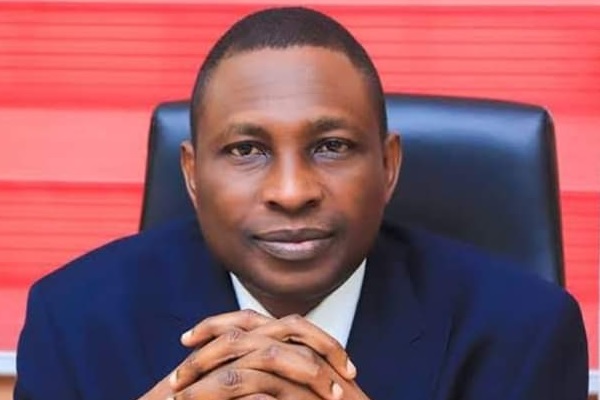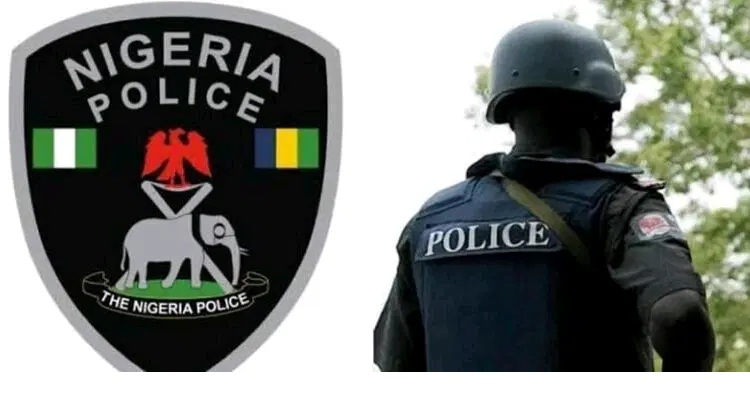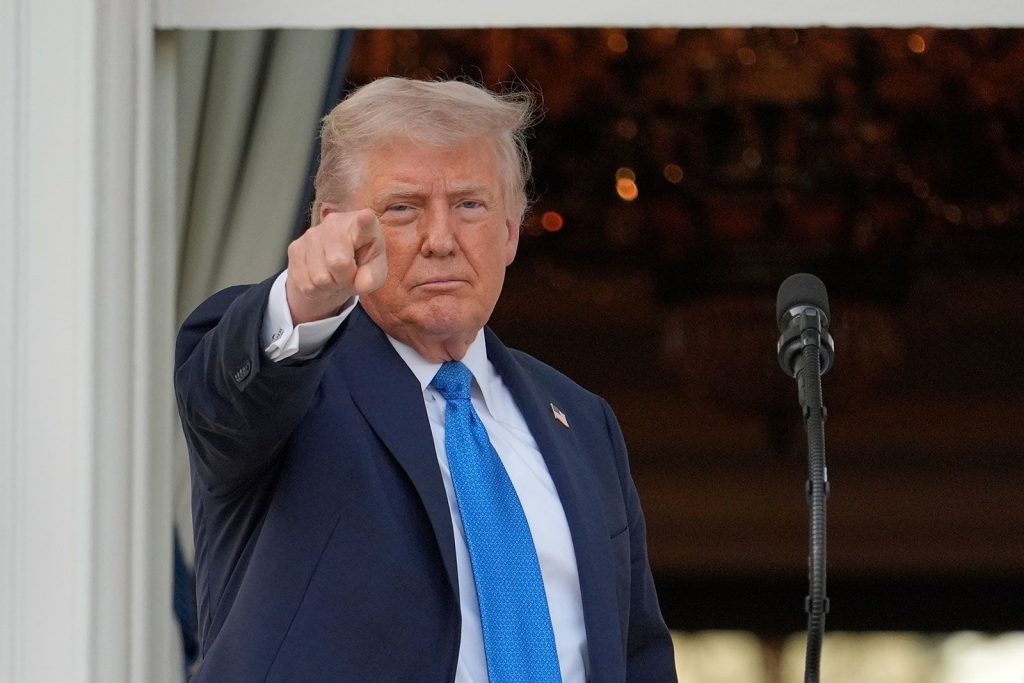Politics
PDP congress sparks internal crisis as opposition leaders unite
DDM News
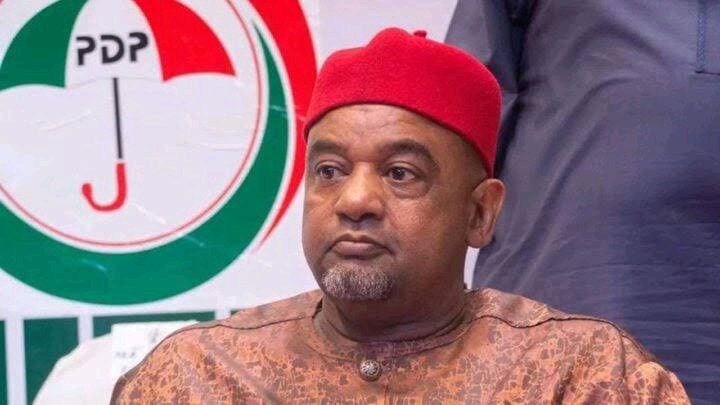
The People’s Democratic Party (PDP) remains in turmoil, with internal conflicts threatening its stability and future political prospects.
Despite efforts to restore order, divisions persist, preventing the party from focusing on its goal of regaining power in 2027.
Diaspora digital media (DDM) gathered that the acting National Chairman, Umar Damagum, has denied that the party conducted its South-South Zonal Elective Congress.
Damagum made this claim during the inauguration of the South-South Zonal Caretaker Committee at PDP’s National Headquarters in Abuja.
His statement contradicts events on February 22, when the party reportedly held the congress and elected Dan Orbih.
Orbih, an ally of the Minister of the Federal Capital Territory, Nyesom Wike, secured 174 votes in the election.
Wike attended the congress in Calabar and declared the process legitimate, affirming Orbih’s leadership of the South-South zone.
He insisted that the South-South remained the PDP’s strongest base and dismissed any plans for a fresh congress.
However, four South-South governors were absent from the event, highlighting internal divisions within the party’s leadership.
The Damagum-led National Working Committee (NWC) rejected Wike’s position and scheduled a new congress for April 12.
The NWC also appointed Emma Ogidi as Chairman of the South-South Caretaker Committee on March 7.
During the inauguration, Damagum reiterated that the South-South Zonal Congress had not been officially conducted.
He emphasized that since the previous leadership’s tenure had ended, the party needed a caretaker committee for the zone.
Bayelsa State Governor Douye Diri, PDP Board of Trustees Chairman Adolphus Wabara, and former Chairman Uche Secondus attended the event.
Other dignitaries included National Secretary Sunday Udeh-Okoye, who has been at the center of leadership controversies.
Diri Asserts PDP’s Unity Amidst Internal Struggles
Governor Douye Diri of Bayelsa State affirmed that no individual was bigger than the PDP.
Speaking at the party’s national secretariat, he expressed confidence that internal challenges could be resolved through collective effort.
Diri, who chairs the South-South PDP Governors Forum, urged members to prioritize unity and internal stability.
He stressed that the party must focus on resolving its internal disputes before blaming external forces.
For the PDP to remain competitive, Diri argued, it must confront and address internal divisions.
He noted that it was easy to blame others, but internal reforms were necessary for the party’s progress.
He called for unity and discipline, emphasizing that the power to fix the party lay in the hands of its members.
Diri reiterated that no single individual should be allowed to dominate or destabilize the PDP.
The newly inaugurated zonal caretaker committee, he explained, had the NWC’s mandate to address issues affecting the South-South zone.
He expressed hope that the committee’s work would mark a step forward for the party’s growth.
Diri highlighted that four governors from the South-South were aligned in strengthening the party’s position.
The deputy governor of Delta State represented his governor, while messages came from the Akwa Ibom and Rivers governors.
He emphasized the need for leadership, cooperation, and strategic action to strengthen the PDP’s presence in the region.
Anyanwu’s Aide Arrested Over PDP NWC Disruption
An aide to PDP’s former National Secretary, Senator Samuel Anyanwu, was arrested for disrupting an NWC meeting.
Emmanuel Okoronkwo allegedly hired thugs to prevent the NWC from convening at the party’s national secretariat in Abuja.
The disruption occurred because Anyanwu was not permitted to attend, while Sunday Udeh-Okoye was already seated.
Okoronkwo and his accomplices physically blocked NWC members from entering the meeting venue.
PDP secretariat staff confronted him, questioning whether he was the party’s Chief Security Officer.
Security personnel, including police, DSS, and army officers, later intervened to restore order.
A Chief Superintendent of Police, Haliu Raphael, led the operation that resulted in Okoronkwo’s arrest.
He was taken into custody along with his hired thugs and transported in security vehicles.
Earlier, Okoronkwo had locked the PDP’s Wadata Plaza secretariat, preventing access to party members and officials.
A video circulating online showed him threatening to unleash violence against “unauthorized persons” entering the premises.
Journalists and visitors were denied entry, escalating tensions at the secretariat.
Okoronkwo had previously assaulted Udeh-Okoye during a PDP Board of Trustees meeting.
The PDP’s NWC held its first meeting in five months, aiming to restore peace within the party.
However, the heavy security presence at the meeting reflected ongoing tensions.
A few hours before the meeting, thugs occupied the building, obstructing access for NWC members.
Security forces arrived to disperse the disruption and arrest the instigators.
The Supreme Court has yet to deliver a verdict on the PDP National Secretary’s leadership dispute.
Despite tensions, the NWC meeting proceeded, focusing on upcoming elections and internal reforms.
Bauchi Governor Seeks Stronger Opposition With Peter Obi
Bauchi State Governor Bala Mohammed expressed his willingness to work with Peter Obi to strengthen Nigeria’s opposition politics.
Speaking after a private meeting with Obi, Mohammed praised his political style and governance vision.
He described Obi as a knowledgeable and strategic leader who understands governance and economic development.
Mohammed noted that Obi’s approach to politics aligns with the need for a credible opposition.
He acknowledged Obi’s influence as a key opposition figure in Nigeria’s political landscape.
Both leaders discussed issues affecting the opposition and Nigeria’s governance challenges.
They also examined political instability in Rivers State and strategies to strengthen opposition movements.
Mohammed emphasized the need for unity among opposition leaders to challenge the ruling party effectively.
He declared his readiness to collaborate with Obi to build a stronger and more strategic opposition.
The governor stressed the importance of offering credible alternatives to the ruling party.
He argued that genuine leadership, vision, and sincerity were needed to rescue Nigeria from ineffective governance.
Mohammed’s fellow PDP governors, he said, supported stronger alliances among opposition leaders.
Peter Obi confirmed that his visit to Bauchi was part of wider consultations on Nigeria’s political future.
He explained that discussions with northern leaders were crucial for national unity and progress.
Obi emphasized that addressing poverty was key to resolving insecurity in the North.
He argued that without economic opportunities, crime and violence would continue to rise.
He urged Nigeria to invest in education and agriculture to reduce poverty and unemployment.
Obi criticized the government for prioritizing political scandals over pressing economic and security issues.
He stressed that hunger, education, and healthcare should be at the center of political discourse.
Obi concluded that his discussions with Mohammed were part of ongoing efforts to unify the opposition.
The meeting signaled potential collaboration between opposition figures ahead of the 2027 elections.
If successful, such alliances could reshape Nigeria’s political landscape in the coming years.
The PDP’s internal struggles, combined with new opposition alignments, will shape the future political landscape.
Observers will watch closely as the party navigates its internal crises and prepares for the next elections.
News
VIRAL VIDEO: Moment Yahaya Bello Orders Kogi State House Members to Sit on Floor, Gives Strict Directives

A viral video circulating on social media has captured former Kogi State Governor Yahaya Bello making newly elected State House of Assembly member, Hassan Shado, and his supporters sit on the floor during a meeting in Abuja.
The meeting took place at Bello’s residence on Monday, where he received members of the All Progressives Congress (APC) to discuss party unity and responsibilities.
Shado, who won the Dekina-Okura II State Constituency by-election on August 16, was formally presented to the former governor.
INEC declared Shado the winner after he polled 55,073 votes, defeating Godwin Meliga of the PDP, who garnered 1,038 votes.
During the session, Bello emphasized that Shado must strictly obey the directives of Governor Ahmed Usman Ododo in all legislative matters.
He drew his ear to stress the importance of cooperation, warning the lawmaker to align with Assembly decisions even when he did not fully understand them.
Bello said, “Go and cooperate with the Speaker and other members of the House of Assembly. Support Governor Ododo in everything that comes to the Assembly, even if you don’t understand it.”
Bello also reminded Shado that political victories are collective achievements.
He stated, “No candidate wins an election alone. Your people worked tirelessly from nomination to election day. Do not let them down.”
He urged inclusivity, consultation, and collective leadership, emphasizing that unity remains the key to APC’s continued success in Kogi State.
The former governor praised the people of Kogi East for demonstrating unity, which he said had been lacking in the past.
He further expressed confidence that APC would retain all major political positions in upcoming elections, declaring, “Our President, Bola Tinubu, will be re-elected.
Governor Ododo will be re-elected. All our candidates will continue to win on our great party’s platform.”
Bello’s post-governorship period has been marked by controversy.
The EFCC accused him of diverting over N110 billion from Kogi State coffers during his tenure.
He evaded multiple court summons and even a failed arrest in Abuja that led to a shootout. Ultimately, Bello surrendered to the EFCC on November 26, 2024, after months of avoiding legal proceedings.
Despite his legal troubles, Bello maintains influence over APC lawmakers in Kogi and continues to assert political authority, as shown in the recent video with Shado.
Watch the video below.
News
2027: ADC Coalition Deceiving Nigerians – Baba-Ahmed
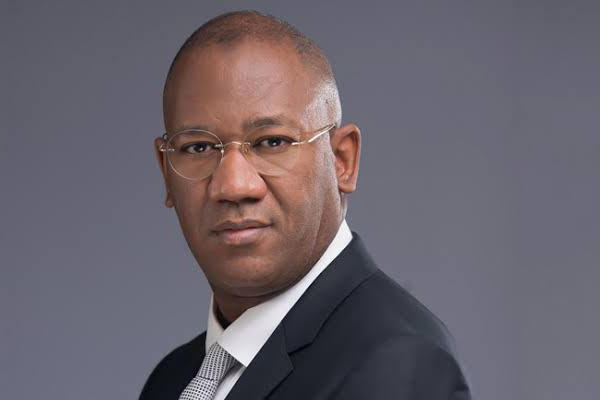
The 2023 Labour Party (LP) vice-presidential candidate, Datti Baba-Ahmed, has warned Nigerians that the opposition coalition under the African Democratic Congress (ADC) is giving false hope about rescuing the country from underdevelopment.
“They are deceiving us,” Baba-Ahmed said during an interview on Channels Television’s Politics Today on Friday.
Baba-Ahmed, who ran alongside Peter Obi in the 2023 presidential election won by Bola Tinubu of the All Progressives Congress (APC) expressed his willingness to be Obi’s running mate in the 2027 presidential election.
Although Obi has shown interest in the 2027 race and is aligning with ADC coalition figures such as David Mark, Atiku Abubakar, Nasir el-Rufai, Rotimi Amaechi, and Rauf Aregbesola, Baba-Ahmed stressed that he wants Obi to remain in the Labour Party and contest as its presidential candidate.
“I’m in the Labour Party. I’m a Peter Obi man. I still want Peter Obi to come back to the Labour Party and contest the 2027 election,” Baba-Ahmed stated.
When asked about his plans for the 2027 race, Baba-Ahmed confirmed his readiness to serve as a running mate for like-minded leaders committed to restoring Nigeria.
“If Nigeria is still around and there is an electoral system to follow, my love for Nigeria is undying.
I would appropriately associate with groups and individuals aligned with restoring the nation,” he said.
Baba-Ahmed also revealed two potential leaders he would consider deputising, with Peter Obi being his primary choice. “The first one has not said anything.
The second one is Peter Obi. I’m always with Peter Obi until he decides not to,” he added.
News
Tinubu Secures Fresh $238m Loan from Japan

Nigeria has secured a $238 million loan from the Japan International Cooperation Agency (JICA) to support the expansion and modernization of the national power grid.
The deal, confirmed during engagements at the ninth Tokyo International Conference on African Development (TICAD9) in Yokohama, Japan, reflects a strategic shift towards implementation-driven energy development.
President Bola Tinubu highlighted that Nigeria’s participation at TICAD9 focused on concrete, outcome-oriented partnerships rather than ceremonial diplomacy.
“We are moving from planning to implementation, from agreements to delivery, and from promises to measurable results,” he said.
Details of the JICA Loan Project
The $238 million loan, supported by a Federal Executive Council counterpart funding of ₦19,083,192,805.30, will finance significant upgrades to Nigeria’s transmission infrastructure.
Key components of the project include:
Construction of 102.95 km of new 330kV double-circuit lines
Construction of 104.59 km of 132kV double-circuit lines
Development of four 330/132/33kV substations and two 132/33kV substations
Multiple line bay extensions to improve efficiency and reduce system losses
According to Minister of Power, Chief Adebayo Adelabu, the partnership with Japanese companies such as Toshiba, Hitachi, and Japan’s Transmission & Distribution Corporation is essential for unlocking Nigeria’s energy potential.
“Our focus is on transmission infrastructure, operational efficiency, and strategies to reduce system losses.
This $238 million loan from JICA provides the backbone for that transformation,” Adelabu explained.
Adelabu acknowledged Japan’s consistent support for Nigeria’s power sector, highlighting contributions in infrastructure, technical studies, training, and financing.
He emphasized that JICA’s backing is critical to expanding access to reliable, affordable, and sustainable electricity across the country.
The project aims to strengthen Nigeria’s power transmission network, improve system reliability, and enhance overall efficiency, ultimately supporting industrial growth and meeting rising electricity demand nationwide.
Africa
‘Misplaced Priority’: Peter Obi Blasts FG’s ₦142bn Bus Terminal Project

Former Labour Party presidential candidate Peter Obi has slammed the Federal Government’s approval of ₦142 billion for the construction of bus terminals across Nigeria, describing it as a reckless misplacement of priorities.
Obi issued a statement on Friday, August 22, via his Official X formerly Twitter platform, warning that the project reflects poor leadership and lack of focus in managing Nigeria’s limited resources. He titled his statement, “₦142 Billion for Bus Terminals.”
According to him, the true test of leadership is how scarce resources are prioritized.
He stressed that investing such a huge amount in bus terminals while critical sectors like healthcare suffer shows a government that is out of touch with citizens’ realities.
Obi said: “The difference between success and failure in any nation is how leaders prioritise resources.
The decision to spend ₦142 billion on six bus terminals exposes a lack of competence and vision. It is a clear sign of poor leadership.”
The Federal Executive Council had recently approved the funds for the construction of one modern bus terminal in each of the six geopolitical zones.
The government described it as part of efforts to modernise transport infrastructure and improve mobility nationwide.
But Obi strongly disagreed. He compared the allocation to healthcare funding, pointing out that the combined budget for all teaching hospitals and federal psychiatric centres in Nigeria is less than ₦100 billion in the 2024 budget.
“This is disturbing,” Obi continued, “because health remains one of the most critical sectors of development. Yet it is underfunded and deteriorating rapidly.
The World Health Organization has reported that over 20 million Nigerians live with mental health conditions.
This is a tragic irony. How can the government ignore this crisis and focus on bus terminals?”
He argued that the health sector, alongside education and poverty reduction programs, deserves priority attention.
Obi insisted that until government spending reflects the real needs of Nigerians, the country will remain trapped in poor governance.
Many Nigerians have also taken to social media to express anger, echoing Obi’s concerns. Critics argue that the decision proves the Federal Government is disconnected from the economic struggles of ordinary citizens.
For Obi, the ₦142 billion project is not just a case of wrong timing.
He sees it as a clear example of governance failure and misplaced priorities.
News
JUST IN: Benue Assembly Suspends Four Lawmakers

The Benue State House of Assembly has suspended four lawmakers for six months after they allegedly attempted to impeach Speaker Aondona Dajoh on Thursday night.
The affected members are Alfred Berger of Makurdi North, Terna Shimawua of Kian constituency, Cyril Ekong of Obi constituency, and James Umoru of Apa constituency.
Their suspension was announced during Friday’s sitting.
Majority Leader Saater Tiseer raised a motion of urgent importance, accusing the four lawmakers of plotting to destabilize the assembly with what he described as an unnecessary crisis.
The House adopted the motion, and the Speaker ordered the Sergeant-at-Arms to escort the suspended lawmakers out of the chambers.
The suspension also triggered changes in leadership positions. Berger, who previously served as the Assembly’s spokesperson, was replaced by Audu Elias on the directive of Speaker Dajoh.
Tension had been brewing in the Benue Assembly in recent weeks, with divisions among members deepening over political alignments and governance issues.
Thursday night’s failed impeachment move reportedly escalated the crisis, leading to Friday’s disciplinary action.
The suspension marks another turbulent chapter in the state’s politics.
In recent months, the Benue Assembly has clashed over commissioner nominations, governance direction, and security concerns across the state.
Observers fear the latest crisis could distract the House from tackling pressing issues, including widespread insecurity and economic hardship facing residents.
Political analysts also warn that the suspension may further polarize members and deepen divisions in the ruling structure of the Assembly.
The development adds to Benue’s growing list of political confrontations, highlighting the fragile relationship between lawmakers and leadership in the state.
-
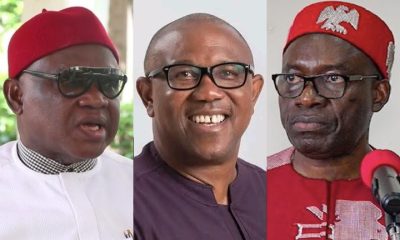
 Featured5 days ago
Featured5 days agoYour Attacks on Peter Obi Are Petty, Stop It! Chekwas Rebukes Soludo
-
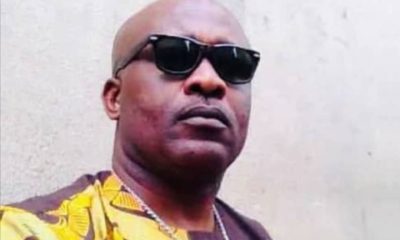
 News4 days ago
News4 days agoTension in Anambra community as senior police officer shoots kinsman dead
Colleagues, others try cover-up; victim's family fights back
-
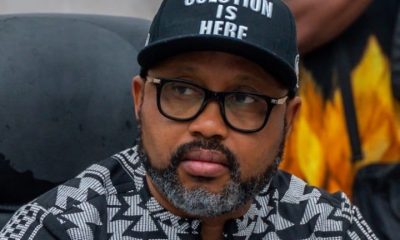
 News7 days ago
News7 days agoAnambra South Bye-Election: APC Chief Rescues Deputy Gov Caught In Vote Buying From Angry Youths
By Chuks Collins, Awka
-

 Celebrity/Entertainment1 day ago
Celebrity/Entertainment1 day agoHow Nigerian TikToker Geh Geh Made ₦45 Million in One Night
-

 News5 days ago
News5 days agoNigerian visa applicants must provide 5-yr social media history — US embassy
-
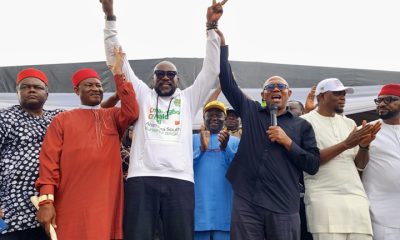
 Analysis6 days ago
Analysis6 days agoSystemic Sabotage: How APC, INEC Colluded To Undermine Amamgbo’s Senatorial Bid
By Arthur Ezechukwu
-

 News3 days ago
News3 days agoTerrorist Organisation: APC, PDP Members in US, UK, France Risk Deportation
-

 Celebrity/Entertainment5 days ago
Celebrity/Entertainment5 days agoWhy single mothers can’t raise boys into proper men — Jim Iyke
-

 News7 days ago
News7 days agoBREAKING: Troops arrest Nigeria’s most wanted terror kingpin
-

 News2 days ago
News2 days agoVandal electrocuted while vandalizing Aba power infrastructure






